THE POLITICS OF EDUCATION
CRITICAL STUDIES IN EDUCATION SERIES
EDITED BY PAULO FREIRE & HENRY A. GIROUX
EDUCATION UNDER SIEGE
The Conservative, Liberal & Radical Debate Over Schooling
STANLEY ARONOWITZ & HENRY A. GIROUX
CRITICAL PEDAGOGY & CULTURAL POWER
DAVID W. LIVINGSTONE & CONTRIBUTORS
A PEDAGOGY FOR LIBERATION
IRA SHOR & PAULO FREIRE
LITERACY
Reading The Word & The World
PAULO FREIRE & DONALDO MACEDO
WOMEN TEACHING FOR CHANGE
Gender, Class & Power
KATHLEEN WEILER
THE POLITICS OF EDUCATION
Culture, Power & Liberation
PAULO FREIRE
THE POLITICS OF EDUCATION
Culture, Power, and Liberation
PAULO FREIRE
introduction by Henry A. Giroux
translated by Donaldo Macedo
CRITICAL STUDIES IN EDUCATION SERIES




Contents
vii
xi
xxvii
Translator's Preface
 central theme in Paulo Freire's work is his insistence on the need for readers to adopt a critical attitude when reading a text. That is, readers should critically evaluate the text and not passively accept what is said just because the author said it. Readers must always be prepared to question and to doubt what they have read.
central theme in Paulo Freire's work is his insistence on the need for readers to adopt a critical attitude when reading a text. That is, readers should critically evaluate the text and not passively accept what is said just because the author said it. Readers must always be prepared to question and to doubt what they have read.
Though I have long been inspired by Freire's challenge, I must admit that I did not so profoundly understand the significance of his insistence that readers be critical and predisposed to question and doubt until I confronted the many dimensions of Freire's thought while translating the contents of this book. To avoid committing serious and unforgivable translation errors and distorting his brilliant and forceful ideas, I was forced to meticulously read and reread each word, each sentence, and each paragraph, in order to engage in a deeper dialogue with the author through his book. I had to understand deeply and experience his concepts in order to render them into English, preserving the same force without sacrificing the music and the poetry of his eloquent prose. This has been a far from easy task. As Edwin and Willa Muir remind us,
doing a job of translation was like breaking stones, but of course I was wrong to say so. Translating a foreign language into one's language is as fatiguing as breaking stones, but there the resemblance ceases. One is not dealing with blocks of words that have to be trimmed into other shapes; one is struggling with something at once more recalcitrant and more fluid. The spirit of a language, which makes thought flow into molds that are quite different from those of one's native speech. The very shape of thought has to be changed in translation, and that seems to me more difficult than rendering words and idioms into their equivalents."'
The translator must be given the freedom to recreate, as Chukovsky succintly pointed out: "The most important thing for the translator to achieve is to recreate in his version of the text the thoughts of the translated author, his `face,' his `voice'...."2 With the help of many friends, particularly Paulo Freire himself, Henry Giroux, and Jack Kimball, I have tried to re-create the author's voice.
The translation of this book posed a constant and provocative challenge; how to preserve the force of Freire's thoughts, in English, while maintaining the fluidity of his writing. In cases where thought was pitted against form, I opted for the former. This is particularly true of terms that are not readily translated into English-terms like mechanicist and technicist. As originally used, these terms mean more than "mechanical" and "technical," respectively. They embody an ideology with underlying interests that legitimize specific forms of social relations. In our discussions about the translation, Freire insisted that unless North American readers begin to accept the coinage of foreign words in English just as other languages readily incorporate English terms, they will develop a form of linguistic colonialism.
There were other terms that I could only give a close approximation of in the English translation and still others that were untranslatable. A definition of these terms is in order.
The asentamiento is an economic organization of agricultural production adopted as an experiment in Chile, and probably in other countries, during the period of agrarian reform. In these organizations the property belongs to the community, and the management of the production process is controlled by the peasants. A culture circle is a group of individuals involved in learning to read and write, as well as in the political analysis of their immediate reality and the national interests. In culture circles, reading demands more than decodification of linguistic symbols. It is viewed as a social and political "reading" of the world. The central team refers to coordinators responsible for literacy and other activities of culture circles. Latifundium is a Spanish and Portuguese word of Latin origin and means a large, privately owned landholding.
This translation would not have been possible without the generous cooperation of many friends. I am grateful to my colleagues at the University of Massachusetts-Boston, particularly Mary Anne Ferguson, Neal Bruss, Gilman Hebert, and Vivian Zamel, who provide me with a stimulating environment and support highly conducive to academic pursuits. I would like to thank my friend and mentor, Henry Giroux, for his guidance and, above all, his faith in me. My thanks also go to Jack Kimball, a poet, who understood the importance of preserving the force of Freire's thought in English without sacrificing to any great degree the poetry of his prose. Without him, many obstacles that I faced in the course of this translation would have been difficult to overcome. I would also like to express my gratitude to Dale Koike for her careful reading of the manuscript and her invaluable comments and support. Last, but not least, I would like to express my appreciation to my family for their patience and enthusiastic support.


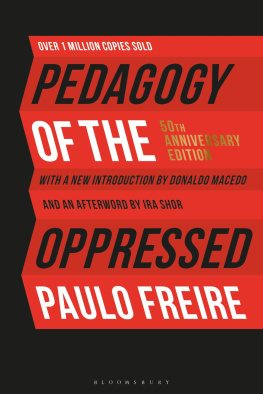
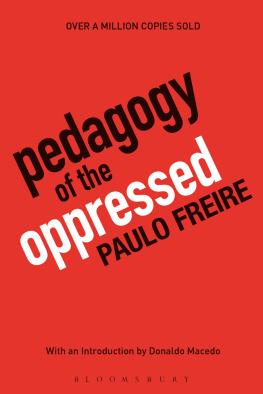
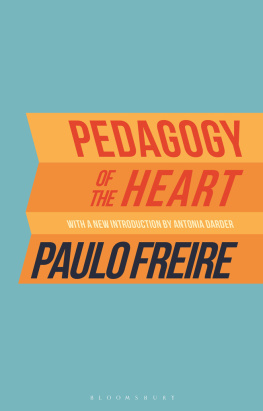
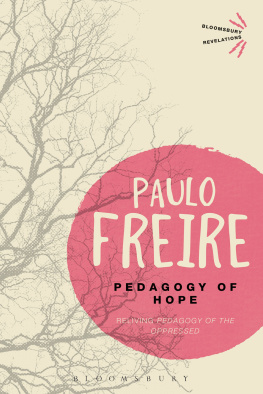

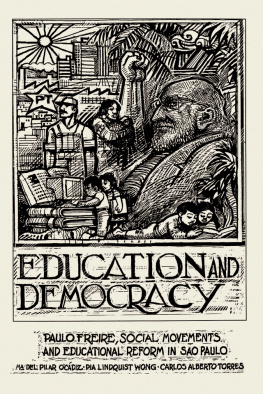
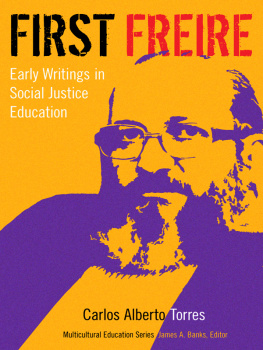
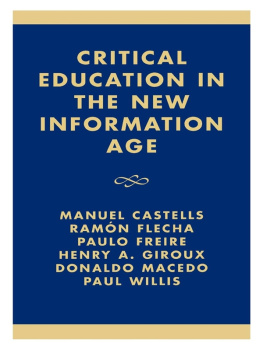
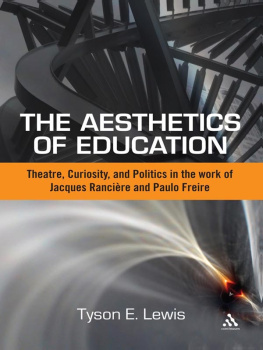
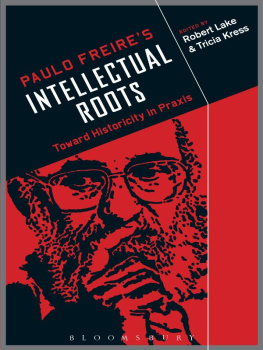
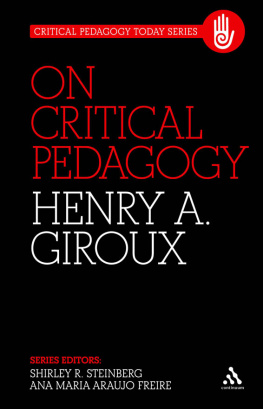










 central theme in Paulo Freire's work is his insistence on the need for readers to adopt a critical attitude when reading a text. That is, readers should critically evaluate the text and not passively accept what is said just because the author said it. Readers must always be prepared to question and to doubt what they have read.
central theme in Paulo Freire's work is his insistence on the need for readers to adopt a critical attitude when reading a text. That is, readers should critically evaluate the text and not passively accept what is said just because the author said it. Readers must always be prepared to question and to doubt what they have read.